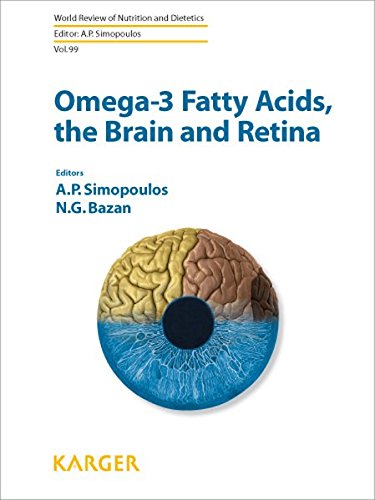|
A group is suing Tulsa Mayor G.T. Bynum and Tulsa Health Department Executive Director Bruce Dart, saying the city’s mask mandate is harmful to healthy people.
Optometrist Robert Zoellner, Clay Clark, Dr. James Meehan, MD, and other Tulsa-based business owners are asking the city to immediately repeal the mask mandate which was passed by city council last month. The group alleges wearing masks is causing healthy people to become sick while trying to prevent the spread of a disease that is not a deadly threat to children and much of the public. “On the OSHA website it states that employers shouldn’t make employees work in an environment where they have less than a 19.5 percent oxygen level,” said Clayton Clark, one of the plaintiffs. “And the mandated masks cause employees to dip below a 19.5 percent oxygen level within 10 seconds of wearing a mask, so I don’t want to make my healthy employees sick.”
0 Comments
Research on omega–3 fatty acids has expanded enormously over the past 10 years. Beginning with the mid 1970s, most of the research focused on the role of omega–3fatty acids in the secondary prevention of cardiovascular disease. Epidemiological observations, animal studies, clinical intervention studies, and studies at the molecular level firmly established the importance of omega–3 fatty acids, in the prevention and management of cardiovascular disease. Furthermore, studies on the mechanisms and the need to balance the omega–6 to the omega–3 ratio for homeostasis and normal development have been carried out at the molecular level and in transgenic animals using lipidomics and informatics. It is now accepted that docosahexaenoic acid (DHA) and arachidonic acid (AA) are essential for brain development during pregnancy, lactation and throughout the life cycle. Recently, studies on brain and retinal function as well as mental health have dominated the field. That DHA can affect brain function and behavior is no longer controversial. The studies on age-related macular degeneration (AMD) given supplemental DHA have revealed significant interactions between DHA and genetic variants. In animal experiments, deficiencies in DHA show impairments in cognitive development correctable by its repletion. Furthermore, the consumption of DHA or fish oil by humans slows cognitive decline in the aged and in subjects with early Alzheimer’s disease (AD) and promotes mental development in infants. Over 60 countries worldwide have supplemented infant formula with DHA and AA, yet the Food and Nutrition Board of the Institute of Medicine has not determined the nutritional requirement of DHA.
There have been a number of volumes in the series of the World Review of Nutrition and Dietetics (WRND) on various aspects of omega–6 and omega–3 essential fatty acids (EFA) beginning with Volume 66: Health Effects of Omega–3 Polyunsaturated Fatty Acids in Sea foods, published in 1991, which truly established the field. It was followed by Volume 75: Fatty Acids and Lipids: Biological Aspects, published in 1994. Volume 83: The Return of Omega-3 Fatty Acids into the Food Supply I. Land-Based Animal Food Products and Their Health Effects, published in 1998. Volume 88: Fatty Acids and Lipids – New Findings, published in 2001. Volume 92: Omega–6/Omega–3 Essential Fatty Acid Ratio: The Scientific Evidence, published in 2003. The present volume 99: Omega–3 Fatty Acids, the Brain and Retina is the sixth in the series, published in 2008. The volume begins with the paper by Artemis P. Simopoulos on Omega–6/Omega–3Essential Fatty Acids: Biological Effects’ which sets the stage for what follows. Dr. Simopoulos emphasizes the changes that have taken place in the food supply that led to high intake of omega–6 and low intake of omega–3 fatty acids, particularly the last 50 years, and the biological effects of the resulting imbalanced omega–6/omega–3 ratio. Major advances have taken place in the concepts of inflammation and proresolution of new lipid mediators, lipoxins, resolvins and protectins discovered by using new approaches mainly lipidomics and informatics. Finally the paper provides an overview of mental illness and eye disease that are presented in detail in the papers that follow. Dr. Palevsky is a NYS licensed pediatrician, who utilizes a holistic approach to children’s wellness and illness. Dr. Palevsky received his medical degree from the NYU School of Medicine in 1987, completed a three-year pediatric residency at The Mount Sinai Hospital in NYC in 1990, and served as a pediatric fellow in the ambulatory care out-patient department at Bellevue Hospital, NYC, from 1990-1991. Since 1991, his clinical experience includes working in pediatric emergency and intensive care medicine, in-patient, and out-patient pediatric medicine, neonatal intensive care medicine, newborn and delivery room medicine, and conventional, holistic and integrative pediatric private practice. Dr. Palevsky is a diplomate of the American Board of Integrative Holistic Medicine, and Past–President of the American Holistic Medical Association. He received his pediatric board certification in 1990, and passed his pediatric board recertification exams in 1997, 2004, and 2011.
In his current pediatric practice, Dr. Palevsky offers well-child examinations, consultations and educational programs to families and practitioners in the areas of preventive and holistic health; childhood development; lifestyle changes; nutrition for adults, infants and children; safe, alternative treatments for common and difficult to treat acute and chronic pediatric and adult conditions; vaccination controversies; mindful parenting; and rethinking the medical paradigm. Additionally, he teaches holistic integrative pediatric & adolescent medicine to parents, and medical and allied health professionals, both nationally & internationally, and is available for speaking engagements worldwide. |
The Awareness domain contains research, news, information, observations, and ideas at the level of self in an effort to intellectualize health concepts.
The Lifestyle domain builds off intellectual concepts and offers practical applications.
Taking care of yourself is at the core of the other domains because the others depend on your health and wellness.
Archives
May 2024
Categories
All
|


 RSS Feed
RSS Feed

